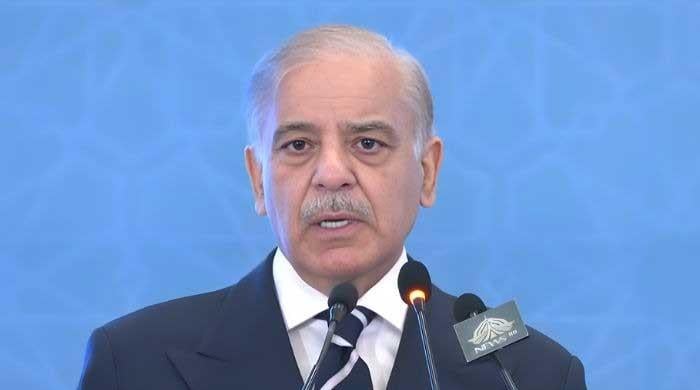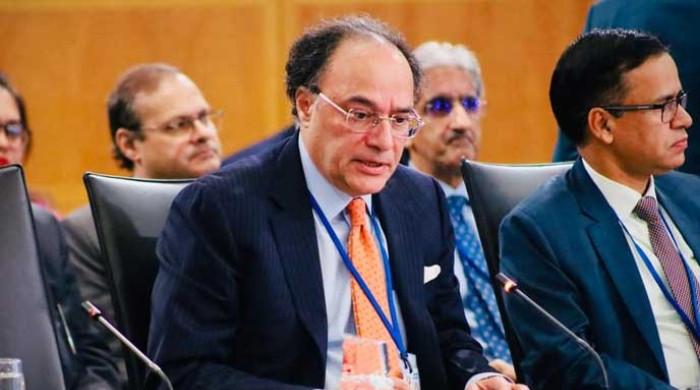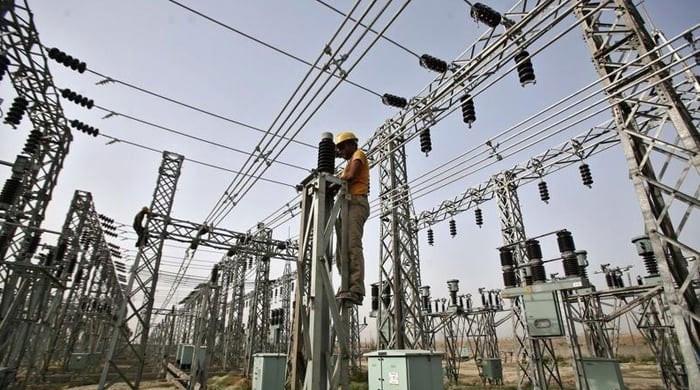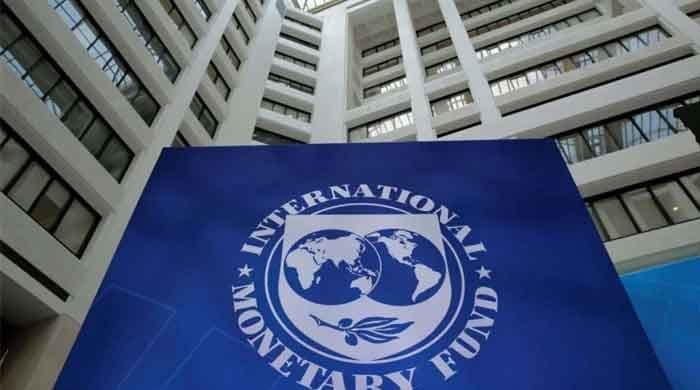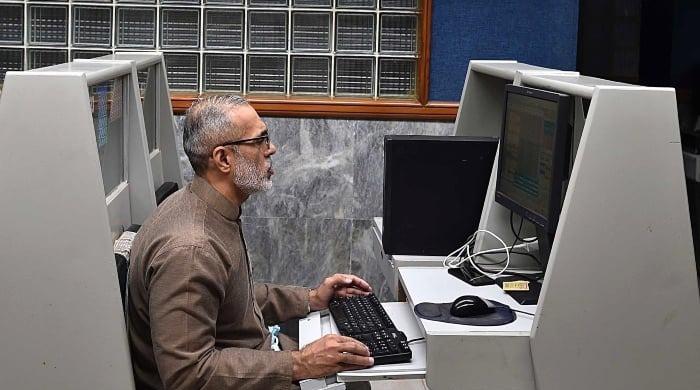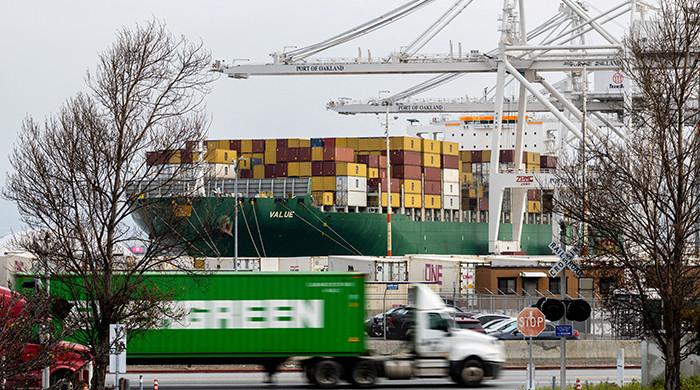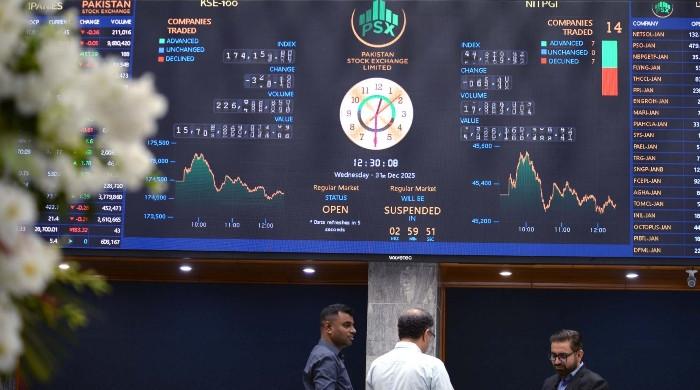Inflation in Pakistan is expected to pick up this year: IMF
IMF warns Pakistan remains vulnerable to possible flare-ups of pandemic, tighter international financial conditions
February 03, 2022
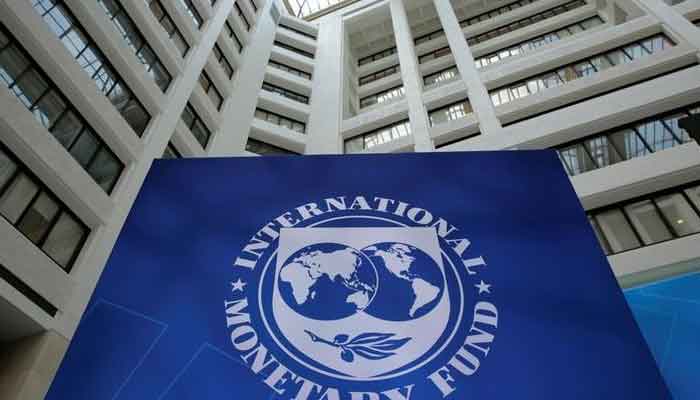
- "Pakistan remains vulnerable to possible flare-ups of the pandemic [...] a rise in geopolitical tensions," IMF warns.
- IMF approves $1bn loan tranche under EFF for Pakistan.
- The next review is due in April 2022.
WASHINGTON: Following the International Monetary Fund's (IMF) decision to resume the stalled $6 billion loan programme, it expressed concerns over rising inflation and a widening current account deficit in Pakistan.
According to a statement after the conclusion of the 2021 Article IV consultation and the sixth review of the extended arrangement under the Extended Fund Facility (EFF) for Pakistan, the IMF approved $1 billion loan tranche under the Extended Fund Facility (EFF) for Pakistan.
"Pakistan entered the COVID-19 pandemic with strengthened buffers, following the approved EFF programme," it said, adding that a strong economic recovery has gained hold since summer 2020, benefiting from the authorities’ multifaceted policy response to the unprecedented shock.
The Fund further observed that at the same time, external pressures also started to emerge in 2021, including a widening current account deficit and depreciation pressures on the exchange rate which also reinforced domestic price pressures.
It said: "The recent policy adjustment was appropriate to address these challenges and maintain economic stability. The economy is set to continue recovering in the fiscal year 2021-22, with real GDP growth projected at 4%, while inflation is expected to pick up this year before gradually slowing down."
The completion of the sixth review allows the authorities to draw the equivalent of SDR 750 million (about $1 billion), bringing total purchases for budget support under the programme to SDR 2,144 million (about $3 billion, or 1065 of the quota).
Shedding light on the solutions to the economic problems of Pakistan, the IMF stated that continued commitment to a market-determined exchange rate and a prudent macroeconomic policy mix will help reduce the current account deficit, and ease external pressures over the medium term.
"However, Pakistan remains vulnerable to possible flare-ups of the pandemic, tighter international financial conditions, a rise in geopolitical tensions, as well as delayed implementation of structural reforms," the Fund warned.
"Strengthening the medium-term outlook hinges on ambitious efforts to remove structural impediments and facilitate the structural transformation of the economy.
The Washington-based global lender further added that to end this increased focus is needed on measures to strengthen economic productivity, investment, and private sector development, as well as to address the challenges posed by climate change.
Moreover, the Executive Board also approved the Pakistani authorities' request for waivers of applicability and nonobservance of performance criteria.
IMF welcomes adoption of amendments in SBP Act
Commenting on the development IMF Deputy Managing Director and Acting Chair Antoinette Sayeh said: “The Pakistani economy has continued to recover despite the challenges from the COVID-19 pandemic, but imbalances have widened and risks remain elevated."
She said: "The authorities’ recent policy efforts to strengthen economic resilience are welcomed. Timely and consistent implementation of policies and reforms remain essential to lay the ground for stronger and more sustainable growth.”
Sayeh said in a statement that the authorities have taken important measures to strengthen fiscal policy and put public finances on a sounder footing. Broader reforms in tax administration and public financial and debt management are expected to further improve the fiscal framework, she added.
“The adoption of amendments to the central bank Act is a welcome step toward strengthening its independence to pursue its mandates of price and financial stability,” Sayeh added.
She maintained that the recent monetary policy tightening was necessary and continued proactive, data-driven monetary policy would help to anchor inflation.
The authorities are committed to removing the existing exchange restrictions and multiple currency practices when balance of payements conditions stabilise, Sayeh added.
She was of the view that strong efforts to advance electricity sector reform are needed to restore the sector's financial viability and address adverse spillovers on the budget, financial sector, and real economy.
The acting chair maintained that the authorities were focused on state-owned enterprises reform, fostering the business environment and reducing corruption and addressing the challenges posed by climate change.
IMF approves $1bn tranche for Pakistan
It is pertinent to mention here that the IMF executive board completed the sixth review under the EFF for Pakistan on Wednesday, allowing the authorities to draw SDR 750 million (about US$1 billion).
Federal Minister for Finance and Revenue Shaukat Tarin announced the "good news" that IMF has approved the sixth tranche of their programme for Pakistan.
Taking to Twitter he said, “I am pleased to announce that the IMF Board has approved the 6th tranche of their program for Pakistan.”
The EFF was approved by the board on July 3, 2019 for SDR 4,268 million (about US$6 billion at the time of approval, or 210% of quota).
The programme aims to support Pakistan's policies to help the economic recovery from the COVID-19 pandemic, ensure macroeconomic and debt sustainability, and advance structural reforms to lay the foundations for strong, job-rich, and long-lasting growth that benefits all Pakistanis, said the IMF.
In order to meet another condition of the IMF, the government had successfully managed to get the State Bank (Amendment) Bill, 2021, cleared from the Upper House of Parliament — which was the last stumbling block in reviving the stalled programme.
Following the clearance of the bill, all prior conditions of the Fund had been fulfilled by Pakistan, including the approval of the mini-budget and SBP bill.
Keeping in view the requests from Pakistan, the IMF had postponed its Executive Board meetings thrice last month.
The IMF board meeting was postponed last time from January 28 to February 2, 2022. The loan programme had been stalled since April 2021.
Meanwhile, the next review (seventh) under the $6 billion EFF programme will be due in April 2022. The last and final eighth review is expected to be done in September 2022.




